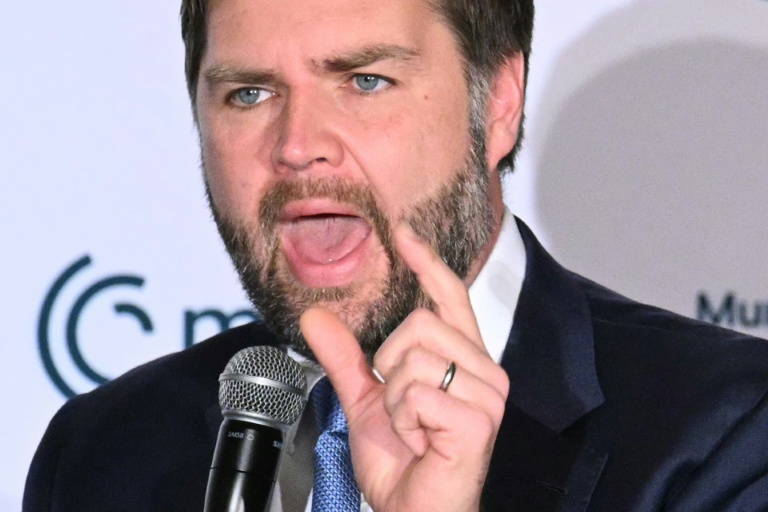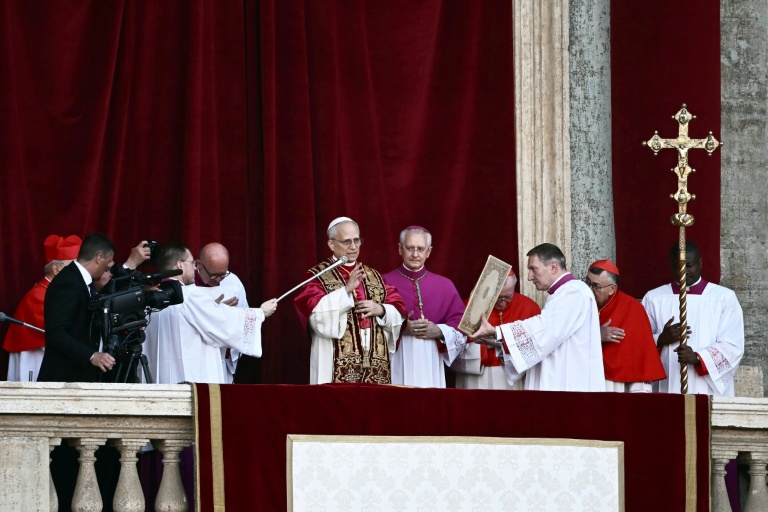New Pope Takes On Politics in the Digital Age
From criticizing the U.S. vice president to opposing capital punishment, Pope Leo hasn’t shied away from addressing contentious political topics on social media platforms, establishing himself as the first “highly internet-savvy” pope.

When JD Vance stated that Christians ought to prioritize loving their family, followed by their neighbors, community, and fellow citizens — someone prominent within the Christian community objected strongly.
Robert Prevost, who has become widely recognized as Pope Leo, swiftly turned to X to make a theological comment aimed at the vice president.
“As JD Vance suggests, Jesus does not instruct us to prioritize whom we love,” he shared, posting an incisive column which garnered tens of thousands of likes along with numerous sharp remarks.

Although Pope Benedict was among the first to use the Twitter handle @Pontifex back in 2012, Pope Leo stands out as the one who assumed leadership of the Church while carrying the significant weight of an extensive social media background.
Over the span of 14 years since his X account was launched, he has published over 400 posts addressing various contentious topics such as racism, clerical sexual abuse, the Covid-19 pandemic, the police killing of George Floyd, and Russia’s attack on Ukraine.

It comes as little surprise for an American who resided in Peru for many years and adopted its citizenship that immigration is a subject very dear to him.
The new pope has notably amplified criticism of US President Donald Trump’s immigration policies, reposting a 2017 article which called refugee bans “a dark hour of US history” and an abandonment of “American values.”
He has repeatedly taken Vance to task, challenging a vice president whose religious views show all the zeal of a recent convert to Catholicism.
It is clear from his ample online commentary, interviews and video blogs that retweets are almost always endorsements.
In 2020, just days after African American George Floyd died due to asphyxiation from a police officer’s knee, he urged his fellow clergymen to voice their concerns.
“We need to hear more from leaders in the Church, to reject racism and seek justice,” he posted.
He has similarly called for increased efforts from the Church to remove clergymen who have committed child sexual abuse.
“If you are a victim of sexual abuse by a priest, report it,” he told Peruvian paper La Republica this month.
We do not accept concealments and hidden information; this leads to significant damage. It’s essential to support those who have been harmed by misconduct.
Embracing another contentious issue, in 2014 he wrote that it was “time to end the death penalty” and has repeated that point over the years in interviews, masses and in public remarks.
He once stated to the gathered Peruvian reporters in his smooth and slightly accented Spanish, ‘We must always stand for being pro-life.’
Nevertheless, he isn’t hesitant to share a jest, such as implying that although numerous individuals possess intelligence, the majority remain unaware of it.
Similar to most of us, the frequency of his social media updates seemed to rise during the pandemic lockdowns.
It remains uncertain whether he will carry over that casual online communication from within the confines of the Apostolic Palace.
arb/sla




